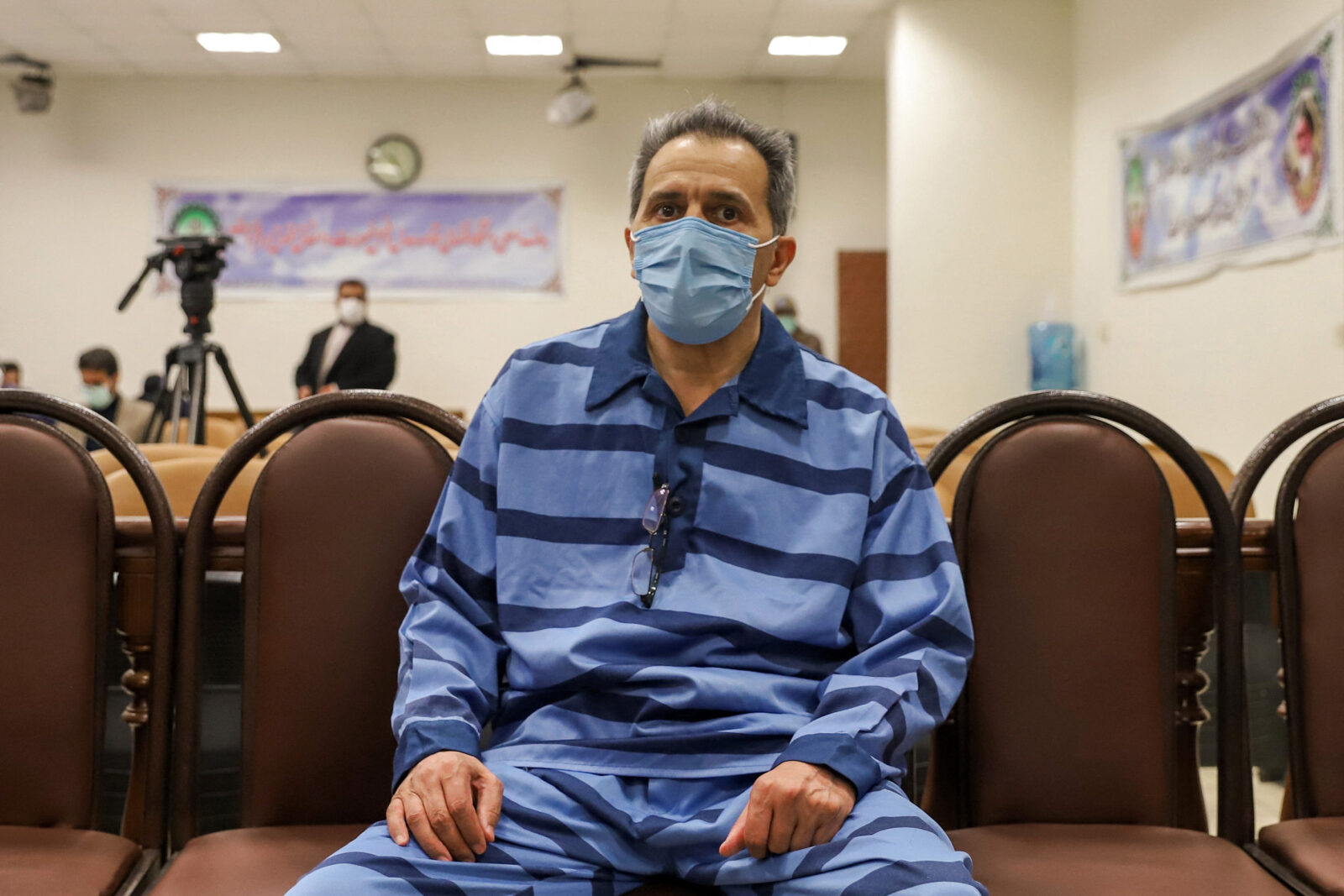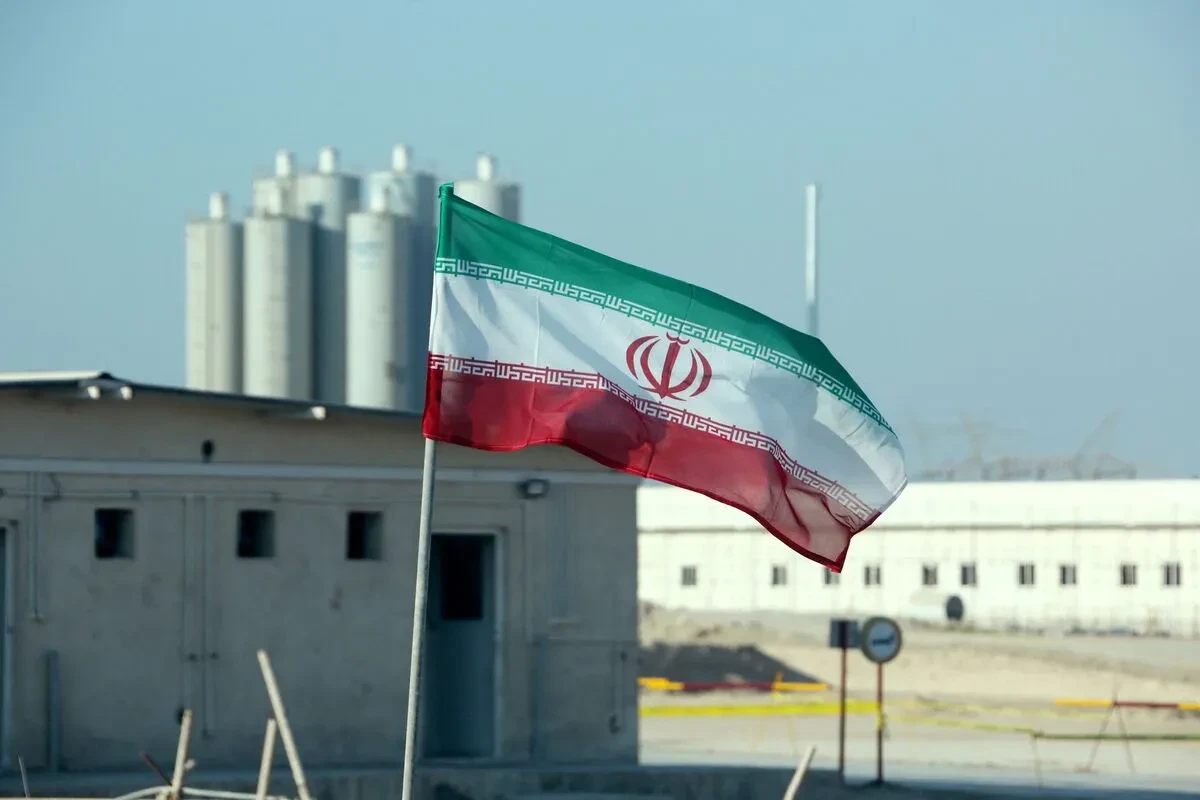Iran executes German citizen Jamshid Sharmahd for alleged role in 2008 attack
 Demonstrator seen holdsing a picture of German citizen of Iranian descent Jamshid Sharmahd, who has been sentenced to death in Iran, and with the lettering 'Free Jamshid' during a demonstration for his release in front of German Foreign Ministry in Berlin, Germany, July 31, 2023. (AFP Photo)
Demonstrator seen holdsing a picture of German citizen of Iranian descent Jamshid Sharmahd, who has been sentenced to death in Iran, and with the lettering 'Free Jamshid' during a demonstration for his release in front of German Foreign Ministry in Berlin, Germany, July 31, 2023. (AFP Photo)
Iranian authorities executed German-Iranian Jamshid Sharmahd on Monday following his detention in 2020, according to the Iranian judiciary.
“After going through the judicial process and the final approval of the court decision by the Supreme Court, the death sentence of Jamshid Sharmahd… was carried out this morning,” reported the judiciary’s Mizan website.
Conviction and charges
Sharmahd, a German citizen of Iranian descent in his late 60s, was seized by Iranian authorities in August 2020 while traveling through the United Arab Emirates, according to his family.
Iran, which does not recognize dual citizenship, announced his arrest after a “complex operation,” without specifying how, where, or when he was seized.
Sharmahd was sentenced to death in February 2023 for the capital offense of “corruption on earth,” a term frequently used by the Iranian government to categorize a wide range of alleged crimes, often related to religious values.
He had been convicted of playing a role in a 2008 mosque bombing in the southern city of Shiraz, in which 14 people were killed and 300 wounded.
Iran also accused him of leading the Tondar group, which reportedly aims to topple Iran’s government and is labeled a “terrorist” organization by authorities. Mizan described Sharmahd as “a criminal terrorist” who “was hosted by American and European countries and was operating under the complex protection of their intelligence services.”

What was he accused of?
Iran accused Sharmahd of being in contact with “FBI and CIA officers” and attempting to reach out to Israeli Mossad agents. Before his kidnapping in Dubai and subsequent detention in Iran, the 69-year-old Sharmahd resided in California. Tehran described him as the “ringleader of the terrorist Tondar group,” claiming he directed armed and terrorist activities in Iran from the U.S.
The Tondar group, often referred to as the “Kingdom Assembly of Iran,” is based in California and aims to restore Iran’s monarchy, which was overthrown by the 1979 Islamic Revolution.

Calls for clemency
Sharmahd’s daughter, Gazelle, was a prominent advocate for her father’s clemency. She expressed her frustrations over the regime’s actions, stating to German media outlet Deutsche Welle, “I don’t think words can change a terrorist regime. This is a regime that kidnaps people like my dad from outside of Iran and takes them over there. … This terrorist regime will not respond to any kind of talks or diplomacy. We have seen this, unfortunately.”
Germany, the European Union, and other international entities had also called for the death sentence to be lifted.
Germany condemns Tehran’s decision
Germany’s foreign minister on Monday strongly condemned Iran’s “inhumane regime” for the execution of 69-year-old German-Iranian Jamshid Sharmahd.
“The killing of Jamshid Sharmahd shows once again what kind of inhumane regime rules in Tehran: a regime that uses death against its youth, its own population and foreign nationals,” said Annalena Baerbock.
She added that Berlin had repeatedly made clear to Tehran “that the execution of a German national would have serious consequences”.
“This underlines the fact that no one is safe under the new government either,” she said in reference to the administration of President Masoud Pezeshkian, who was inaugurated in July.
Additionally, Baerbock expressed her “heartfelt sympathy” for Sharmahd’s family, “with whom we have always been in close contact”.
She said that the German government had made strenuous representations in Sharmahd’s case, with the German embassy in Tehran working “tirelessly” on his behalf and high-ranking teams sent from Berlin on several occasions.



